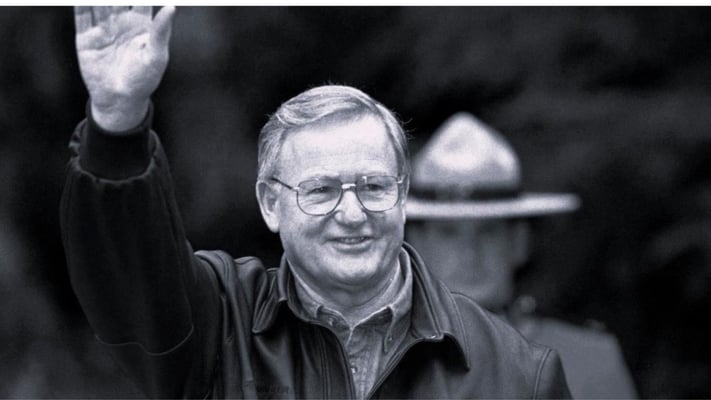Jim Bolger, Former New Zealand Prime Minister, Passes Away at 90

Former New Zealand Prime Minister Jim Bolger, who led the country from 1990 to 1997 and played a pivotal role in advancing reconciliation with the indigenous Māori, passed away on Wednesday at the age of 90, his family announced in a statement.
According to a report by DD News, Bolger had been suffering from kidney failure since last year and had been undergoing dialysis. He died peacefully, surrounded by his wife Joan, their nine children, and 18 grandchildren.
A long-serving politician, Bolger entered Parliament in 1972 and rose to lead the National Party in 1986. He became Prime Minister in 1990 after the party’s electoral victory and remained in office until 1997. Following his retirement from active politics in 1998, he served as New Zealand’s ambassador to the United States from 1998 to 2002, DD News reported.
Paying tribute to the late leader, current Prime Minister Christopher Luxon described Bolger as “a principled and formidable colleague” and “a worthy adversary who never allowed disagreement to become personal,” as quoted by DD News.
During his tenure, Bolger’s government introduced the Mixed Member Proportional (MMP) electoral system, an enduring reform that transformed New Zealand’s political landscape. He also initiated the country’s first settlements between the government and Māori tribes, addressing long-standing grievances stemming from colonisation.
Tukoroirangi Morgan, chair of the Waikato Tainui iwi, hailed Bolger’s contribution to reconciliation, saying, “Jim modernised the whole process of reconciliation in an effort to bring Aotearoa-New Zealand closer together to reflect a more contemporary reality of our nation,” DD News reported.
A known republican, Bolger advocated for New Zealand’s transition away from the British constitutional monarchy. He notably declined a knighthood after leaving office, instead being appointed to the Order of New Zealand, the nation’s highest honour.
Bolger’s leadership marked a defining chapter in New Zealand’s modern history, one that bridged divides, reshaped democratic governance, and laid the groundwork for a more inclusive national identity.
Former New Zealand Prime Minister Jim Bolger, who led the country from 1990 to 1997 and played a pivotal role in advancing reconciliation with the indigenous Māori, passed away on Wednesday at the age of 90, his family announced in a statement.
{% module_block module...Former New Zealand Prime Minister Jim Bolger, who led the country from 1990 to 1997 and played a pivotal role in advancing reconciliation with the indigenous Māori, passed away on Wednesday at the age of 90, his family announced in a statement.
According to a report by DD News, Bolger had been suffering from kidney failure since last year and had been undergoing dialysis. He died peacefully, surrounded by his wife Joan, their nine children, and 18 grandchildren.
A long-serving politician, Bolger entered Parliament in 1972 and rose to lead the National Party in 1986. He became Prime Minister in 1990 after the party’s electoral victory and remained in office until 1997. Following his retirement from active politics in 1998, he served as New Zealand’s ambassador to the United States from 1998 to 2002, DD News reported.
Paying tribute to the late leader, current Prime Minister Christopher Luxon described Bolger as “a principled and formidable colleague” and “a worthy adversary who never allowed disagreement to become personal,” as quoted by DD News.
During his tenure, Bolger’s government introduced the Mixed Member Proportional (MMP) electoral system, an enduring reform that transformed New Zealand’s political landscape. He also initiated the country’s first settlements between the government and Māori tribes, addressing long-standing grievances stemming from colonisation.
Tukoroirangi Morgan, chair of the Waikato Tainui iwi, hailed Bolger’s contribution to reconciliation, saying, “Jim modernised the whole process of reconciliation in an effort to bring Aotearoa-New Zealand closer together to reflect a more contemporary reality of our nation,” DD News reported.
A known republican, Bolger advocated for New Zealand’s transition away from the British constitutional monarchy. He notably declined a knighthood after leaving office, instead being appointed to the Order of New Zealand, the nation’s highest honour.
Bolger’s leadership marked a defining chapter in New Zealand’s modern history, one that bridged divides, reshaped democratic governance, and laid the groundwork for a more inclusive national identity.










Leave a Comment